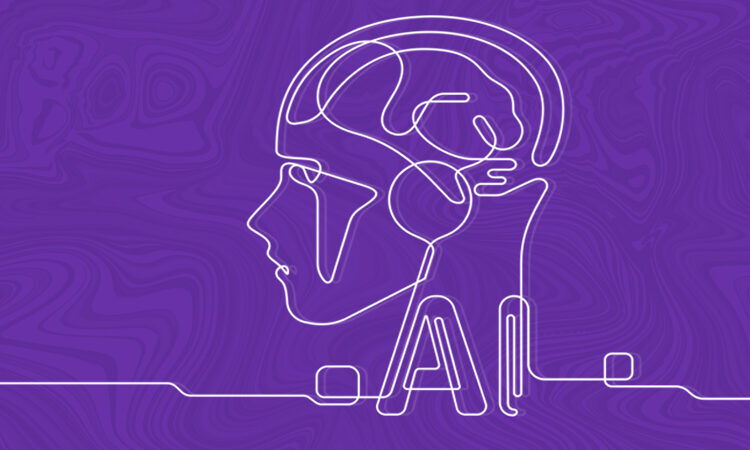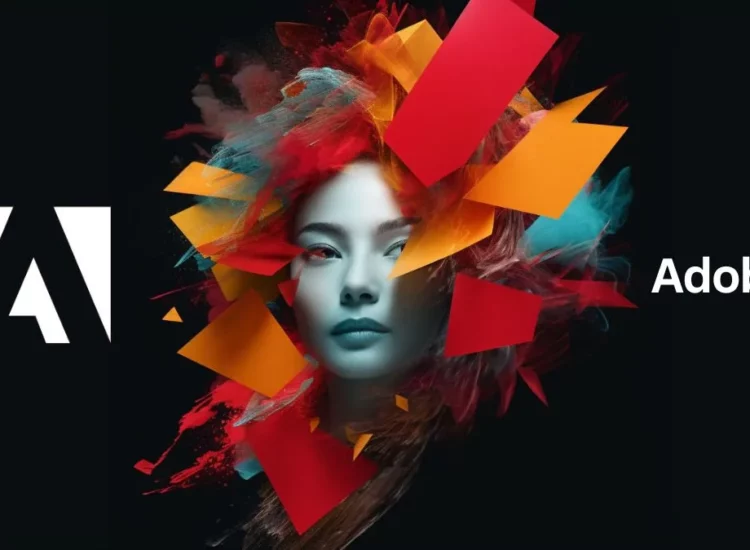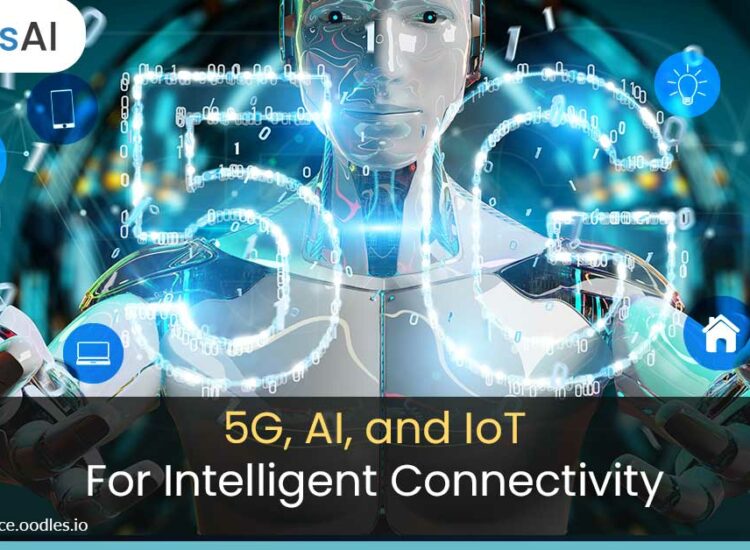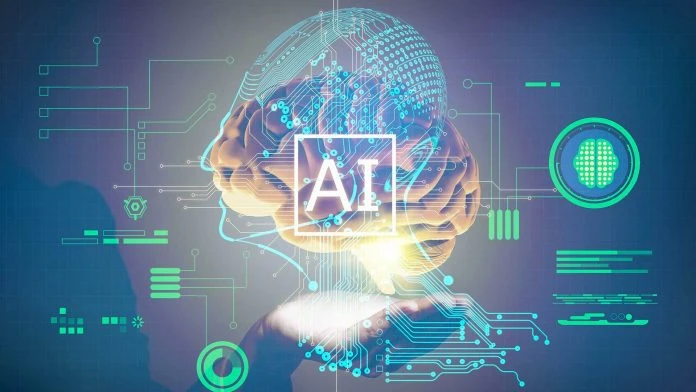In today’s rapidly evolving business landscape, AI in marketing has emerged as a transformative force, reshaping how companies engage with their customers and optimize their strategies. With artificial intelligence and marketing tools increasingly integrated into everyday practices, businesses can harness data-driven insights to enhance customer experiences and drive growth. This article explores the profound impact of artificial intelligence in marketing, detailing its benefits, tools, challenges, and future possibilities.
Toc
The Rise of AI in Marketing
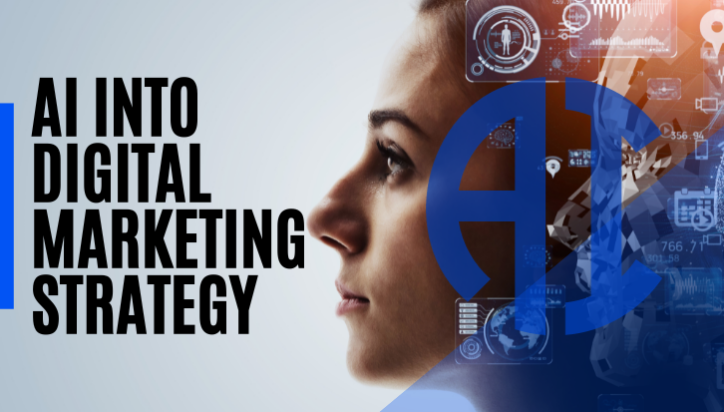
Artificial intelligence is revolutionizing traditional marketing approaches, transitioning from intuition-based strategies to data-driven methodologies. AI in marketing utilizes advanced algorithms and machine learning to automate processes, personalize interactions, and optimize campaigns. This shift allows businesses to understand their customers on a deeper level, enhancing engagement and fostering loyalty. The core functionalities of AI in marketing include:
Automation
AI-powered automation streamlines manual and time-consuming tasks, freeing up resources to focus on more critical business objectives. Automation tools enable businesses to design, execute and analyze marketing campaigns with minimal human intervention.
Personalization
One of the most significant advantages of AI in marketing is its ability to provide highly personalized customer experiences. By analyzing vast amounts of data, AI can identify individual preferences, behaviors, and purchase history to tailor marketing messages uniquely to each consumer. Personalized recommendations, targeted content, and customized offers result in more meaningful customer interactions and improve conversion rates. Moreover, AI-driven personalization strengthens customer relationships by demonstrating a brand’s understanding and responsiveness to unique customer needs, ultimately fostering long-term loyalty.
Optimization
AI also plays a crucial role in optimizing marketing strategies and resource allocation. Through predictive analytics and real-time data processing, AI can identify trends and patterns that inform strategic decisions. This enables marketers to allocate budgets more effectively, focus on high-performing channels, and adjust campaigns dynamically to maximize return on investment. By providing insights into customer behavior and market dynamics, AI empowers marketers to act swiftly and with precision, ensuring that marketing efforts yield the best possible outcomes in a competitive environment.
Key Benefits of AI in Marketing
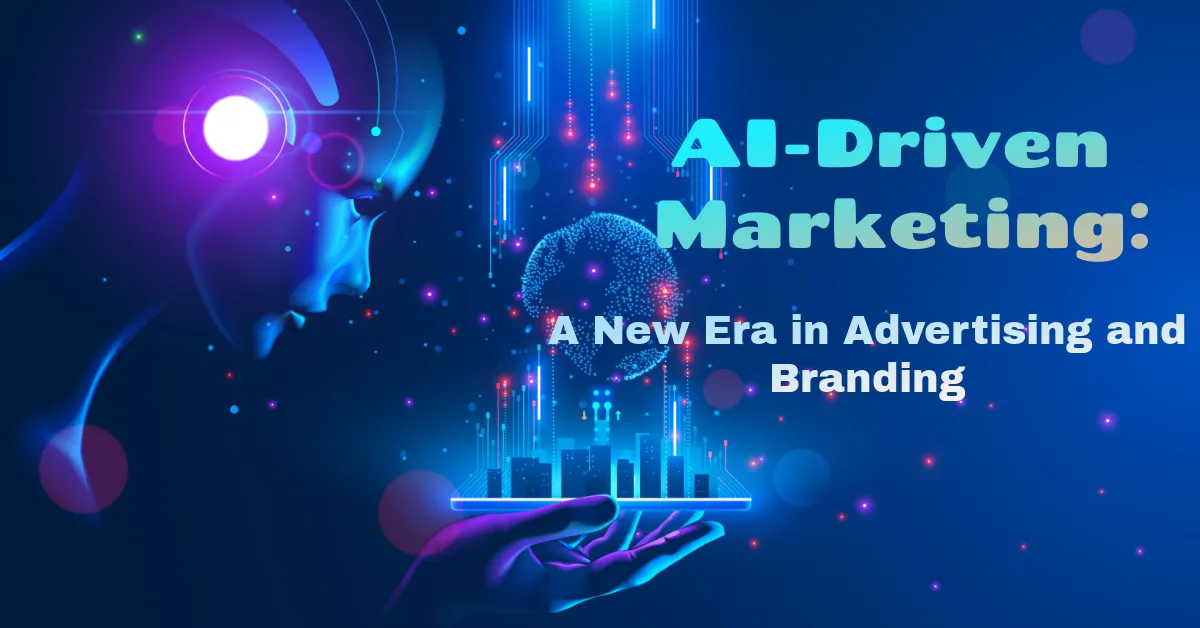
The integration of AI into marketing strategies offers numerous benefits for businesses, including:
Enhancing Customer Experience
AI in marketing excels at personalizing customer interactions. By analyzing vast amounts of data, artificial intelligence can anticipate customer preferences and deliver tailored content, product recommendations, and targeted messaging. This level of personalization not only boosts engagement but also strengthens relationships with your audience.
AI-powered chatbots and virtual assistants are prime examples of how artificial intelligence in marketing can improve customer service. These tools provide immediate responses to inquiries, enhancing user satisfaction and streamlining communication.
Hyper-Personalized Customer Journeys
AI-powered personalization goes beyond basic demographics and interests. It can create truly unique customer journeys based on real-time behavior, past interactions, and even predicted needs. For example, a travel company could use AI to predict a customer’s next trip based on their browsing history, past bookings, and even weather patterns at potential destinations. This allows for highly targeted offers and content, maximizing engagement and conversion.
In 2023, Netflix launched a new AI-powered recommendation system that considers not only what users have watched but also how they’ve interacted with the platform. This resulted in a 10% increase in user engagement and a 5% decrease in churn rate.
Driving Efficiency and Automation
One of the most significant advantages of AI and marketing is the ability to automate repetitive tasks. From email marketing and social media scheduling to data analysis, AI can handle these functions with speed and accuracy. This automation allows marketing teams to focus on strategic initiatives and creative endeavors, ultimately driving business growth.
Examples of AI tools for automation include:
- Email Marketing Platforms: Tools that automate campaign scheduling and audience segmentation.
- Social Media Management: AI-driven platforms that optimize posting times and content engagement.
Empowering Data-Driven Decision Making
AI’s advanced analytics capabilities provide unparalleled insights into customer behavior and market trends. By processing large datasets, artificial intelligence in marketing can identify patterns, predict outcomes, and deliver actionable recommendations. This data-driven approach enables businesses to make informed decisions and optimize their marketing strategies for better performance.
The importance of data quality cannot be overstated. High-quality data ensures the accuracy and reliability of AI-driven insights, which in turn enhances decision-making processes.
Maximizing Return on Investment (ROI)
The combination of personalization, automation, and data-driven strategies propelled by AI can significantly enhance marketing ROI. By delivering the right messages to the right customers at the right time, businesses can reduce wasted ad spend and increase conversion rates.
1. https://1fpt.vn/unlocking-the-power-of-contact-center-ai-software-in-2024
2. https://1fpt.vn/enterprise-generative-ai-tools-a-guide-for-data-scientists
3. https://1fpt.vn/best-ai-crypto-projects-unleashing-the-power-of-ai-for-web3-businesses
4. https://1fpt.vn/unlock-your-creative-potential-discover-how-to-get-adobe-ai-for-free
Moreover, the efficiency gains from AI-powered processes translate into substantial cost savings, allowing companies to allocate resources more effectively.
AI-Powered Marketing Tools and Solutions
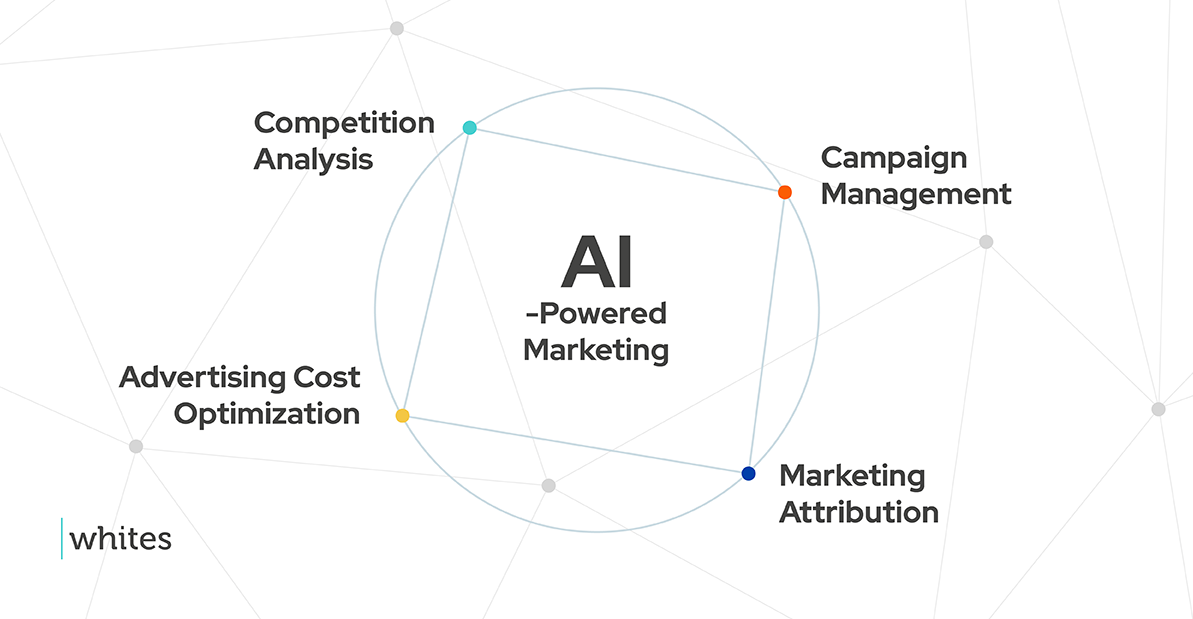
As a business leader, understanding the variety of AI-powered marketing tools available is crucial for leveraging their full potential. Here are some key categories of artificial intelligence and marketing solutions:
Content Creation
AI tools are transforming the content creation landscape. From generating engaging blog posts and social media captions to drafting email copy and video scripts, these AI assistants can help create high-quality content at scale. This not only saves time but also allows your team to focus on strategic direction and creative ideation.
Examples of AI content creation tools include:
- Copywriting Assistants: Tools that generate marketing copy based on provided keywords and themes.
- Video Script Generators: AI platforms that help create scripts tailored to specific audiences.
Data Analysis and Insights
AI platforms excel at analyzing complex datasets and uncovering hidden insights. These tools provide valuable intelligence on market trends, customer preferences, and campaign performance, empowering businesses to make data-driven decisions that fuel growth.
Examples of AI data analysis tools include:
- Analytics Platforms: Tools that aggregate data from various sources to provide comprehensive insights.
- Predictive Analytics Software: AI solutions that forecast future customer behavior based on historical data.
Customer Service and Support
AI-powered chatbots and virtual assistants are revolutionizing the customer service landscape. These tools provide 24/7 support, handle simple inquiries, and escalate complex issues to human agents. By automating routine tasks, businesses can improve response times and enhance the overall customer experience.
Examples of AI customer service tools include:
- Chatbots: Automated messaging tools that interact with customers in real-time.
- Virtual Assistants: AI-powered software that assists users with specific tasks or inquiries.
Marketing Automation
AI-powered automation tools streamline various marketing tasks, such as email marketing, social media management, and lead nurturing. By automating these processes, your team can dedicate more time to high-impact initiatives that directly contribute to your business objectives.
Examples of AI marketing automation platforms include:
- CRM Systems: Tools that automate customer relationship management tasks.
- Lead Scoring Software: AI solutions that prioritize leads based on engagement and likelihood to convert.
Personalization and Recommendation Engines
AI-driven personalization engines tailor customer experiences to individual preferences. These solutions leverage machine learning to analyze user data and deliver customized product recommendations, content suggestions, and targeted messaging.
Examples of AI personalization tools include:
- E-commerce Recommendation Engines: Tools that suggest products based on past purchases and browsing history.
- Content Personalization Platforms: AI solutions that customize website content based on user behavior.
Implementing AI in Your Marketing Strategy
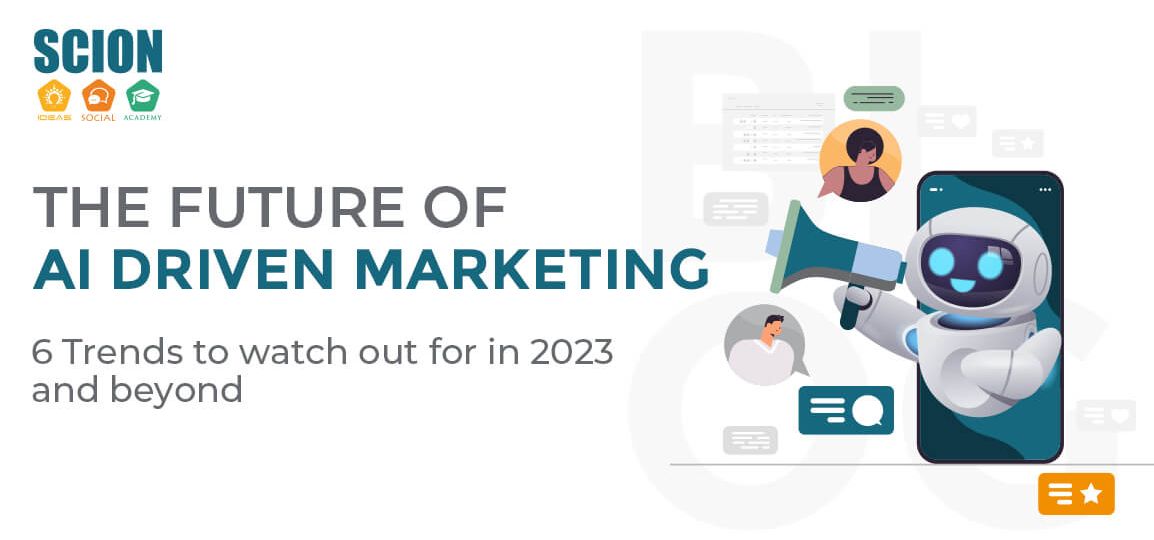
While the benefits of AI in marketing are clear, successfully incorporating this technology into your business requires careful planning and execution. Here are some key considerations to keep in mind:
Data Privacy and Security
As you integrate AI into your marketing strategies, prioritizing data privacy and security is not just crucial—it’s a responsibility. Ensure that your data collection and usage practices comply with regulations such as GDPR (General Data Protection Regulation) and CCPA (California Consumer Privacy Act). These laws are designed to protect consumer rights and require businesses to handle personal data with care. Additionally, maintain transparency with your customers about how their information is being used, and provide them with options to control their data. This trust-building approach not only fosters a positive relationship with your audience but can also enhance your brand reputation in an increasingly privacy-conscious market.
Data Quality
The effectiveness of AI-powered marketing initiatives relies heavily on the quality of your data. Poor data quality can lead to misguided strategies and wasted resources. Therefore, it’s essential to invest in robust data management practices to ensure the accuracy, completeness, and timeliness of your customer information. This may involve regular data audits, cleansing processes, and updates to keep your database current. High-quality data not only unlocks the full potential of AI but also enhances your decision-making capabilities, leading to more accurate targeting, personalized customer experiences, and ultimately, higher conversion rates.
Integration and Expertise
Implementing AI in marketing may require specialized expertise and a strategic approach. This could involve hiring skilled professionals with a background in data science or digital marketing, or partnering with AI consultants who can provide insights and guidance. Ensure that your team possesses the necessary skills and knowledge to seamlessly integrate AI tools into your existing marketing infrastructure. Training sessions and workshops can help upskill your current employees, fostering a culture of innovation within your organization. By optimizing the performance of AI solutions, you can maximize their impact on your marketing efforts and drive better results.
Cost and Return on Investment
Evaluate the financial implications of adopting AI in your marketing efforts thoroughly. While the long-term benefits can be substantial, the initial investment in technology, training, and implementation requires careful assessment of your budget and projected ROI (Return on Investment). Consider not only the direct costs involved but also the potential savings from increased efficiency and improved marketing outcomes. Developing a clear financial plan will enable you to make informed decisions, ensuring that your investment in AI contributes positively to your overall marketing strategy and business goals.
1. https://1fpt.vn/unlocking-the-power-of-contact-center-ai-software-in-2024
2. https://1fpt.vn/best-ai-crypto-projects-unleashing-the-power-of-ai-for-web3-businesses
3. https://1fpt.vn/unlock-your-creative-potential-discover-how-to-get-adobe-ai-for-free
4. https://1fpt.vn/enterprise-generative-ai-tools-a-guide-for-data-scientists
The Future of AI in Marketing

As AI continues to evolve, its potential impact on marketing is boundless and offers exciting opportunities for innovation. In the coming years, we can expect to see transformative advancements in this field that will reshape how businesses connect with their customers, including:
AI-Powered Content Creation
The capabilities of AI in content creation will significantly expand, enabling businesses to generate increasingly sophisticated and engaging content tailored to their target audiences. This evolution will include not only high-quality written articles and blog posts but also interactive experiences, such as chatbots and immersive storytelling. Personalized videos will become a staple, crafted to resonate with individual customer preferences, further enhancing user engagement and loyalty.
AI-Driven Marketing Automation
The automation of marketing processes will become more sophisticated, with AI systems taking on a wider range of tasks that streamline workflows and increase efficiency. This includes advanced campaign planning, where AI analyzes historical data to suggest optimal times for launches, and real-time optimization, adjusting strategies on the fly to maximize performance. Furthermore, AI will enhance customer interactions through personalized communications and predictive responses, ensuring that brands deliver the right message at the right time.
Predictive Analytics and AI-Powered Marketing
AI’s ability to analyze vast amounts of data and predict customer behavior will refine dramatically, allowing businesses to anticipate needs with remarkable accuracy. This capability will empower organizations to proactively adapt their marketing strategies, ensuring their offerings align with emerging trends and consumer preferences. By leveraging predictive analytics, businesses can identify potential opportunities for cross-selling or upselling, increasing customer satisfaction and revenue.
As a business leader, staying informed about the evolving landscape of AI in marketing is essential for maintaining a competitive edge. By embracing the power of this transformative technology, you can better position your organization for long-term success, drive sustainable growth, and foster deeper connections with your customers. Investing in AI tools and knowledge will not only enhance your marketing efforts but also prepare your team for the future of business in an increasingly digital world.
Frequently Asked Questions

Q: What are some common mistakes businesses make when using AI in marketing?
A: Common pitfalls include neglecting data quality, failing to integrate AI effectively into existing workflows, and overlooking ethical considerations related to data usage and customer privacy.
Q: How can I ensure my business is using AI ethically and responsibly?
A: Establish clear data privacy policies, prioritize transparency with customers, and use AI to enhance human interaction rather than replace it entirely.
Q: What are some key considerations for choosing the right AI marketing tools?
A: Evaluate your budget, specific marketing goals, data capabilities, and the level of expertise required for effective implementation.
Q: How can I measure the success of my AI marketing initiatives?
A: Track key metrics such as ROI, conversion rates, customer engagement, and data accuracy to assess the effectiveness of your AI-driven strategies.
Conclusion
AI’s impact on marketing is undeniable, and its continued evolution promises further transformation. As businesses plan their path forward, it is vital to recognize that AI is more than just a tool—it’s a catalyst for comprehensive change. Companies should approach AI integration as an opportunity to redefine their marketing strategies, focusing on innovation and adaptability. Embracing a forward-thinking mindset will enable organizations to navigate challenges and harness AI’s full potential. As this technology becomes increasingly embedded in marketing practices, companies committed to learning and adapting will lead the charge in delivering exceptional customer experiences, redefining success in the digital era. The journey with AI in marketing is just beginning, and its trajectory offers exciting possibilities for those eager to pioneer new horizons.
